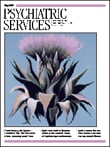When I received a book to review for first-person narratives, I expected something like Kay Jamison or William Styron, a memoir, an introspective description of experience with psychiatric illness. Then I read the second essay in Caroline Knapp's The Merry Recluse . "The Cords That Bind" considers the relationships—the trust, the confidentiality, and the intimacy—women develop through telephone conversations. The essay goes on to consider Monica Lewinsky and Linda Tripp and how in some ways Linda's taping of those infamous telephone conversations was the biggest betrayal and ethical violation in that whole mess. Then I knew this was not your average first-person narrative of psychiatric illness.
The Merry Recluse is a collection of essays by Caroline Knapp. Knapp was a writer of books, columns, and essays. She wrote books titled Drinking, A Love Story about her alcoholism and Appetites: What Women Want about eating in general and her own struggles with anorexia in particular. Another book, Pack of Two, examines relationships between people and their pets. In 2002 Knapp died of lung cancer at age 42, and this collection of her essays was compiled posthumously and published in 2004. It includes pieces for the Boston Phoenix, New Women Magazine, and Salon . The articles are divided into five sections: "With," "Without," "Out There," "In Here," and "The Merry Recluse." "Without" deals most directly with Knapp's alcoholism and her eating disorder. The essay "Food as the Enemy" is as clear and succinct a description of anorexia as I have encountered. Another, "Living Without Alcohol," beautifully articulates the challenges not of achieving sobriety but of figuring out life once drinking has stopped.
The range of essays in The Merry Recluse is remarkable. There is an exquisitely written essay titled "Overload, Post 9/11," which describes the personal aftermath for Knapp, a New Yorker, of September 11, 2001. In some articles Knapp talks about her alcoholism, and in others she talks about her dog, about her anorexia, and about dealing with her psychoanalyst father, their complicated relationship, and his death from a devastating brain tumor. Some pieces are about loneliness and others are about buying furniture. All are beautifully written. Some are laugh-out-loud funny, others are deeply insightful, and some take on an unintended poignancy in light of Knapp's untimely death.
Psychiatric Services reviewers are asked about the appropriate audience for books reviewed. I will use portions of this book to teach medical students about anorexia. I might recommend other segments to mental health providers, at varying levels of training, who are working with individuals with addictions issues. But in general this is a book for people who like to read essays and are interested in the human condition. When I finish with this review, I am passing the book on to my sister who directs plays, teaches drama, and faithfully reads the New Yorker ; I think she will love it.

